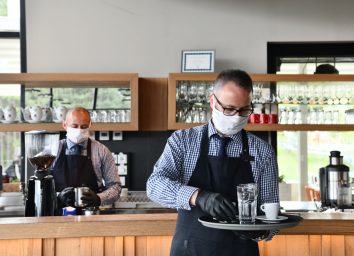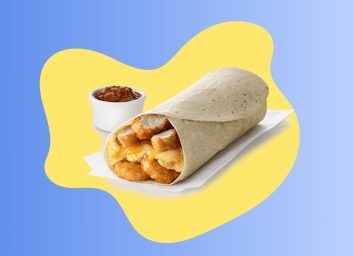7 Unsuspecting Things You Touch at a Restaurant That Can Transmit Coronavirus
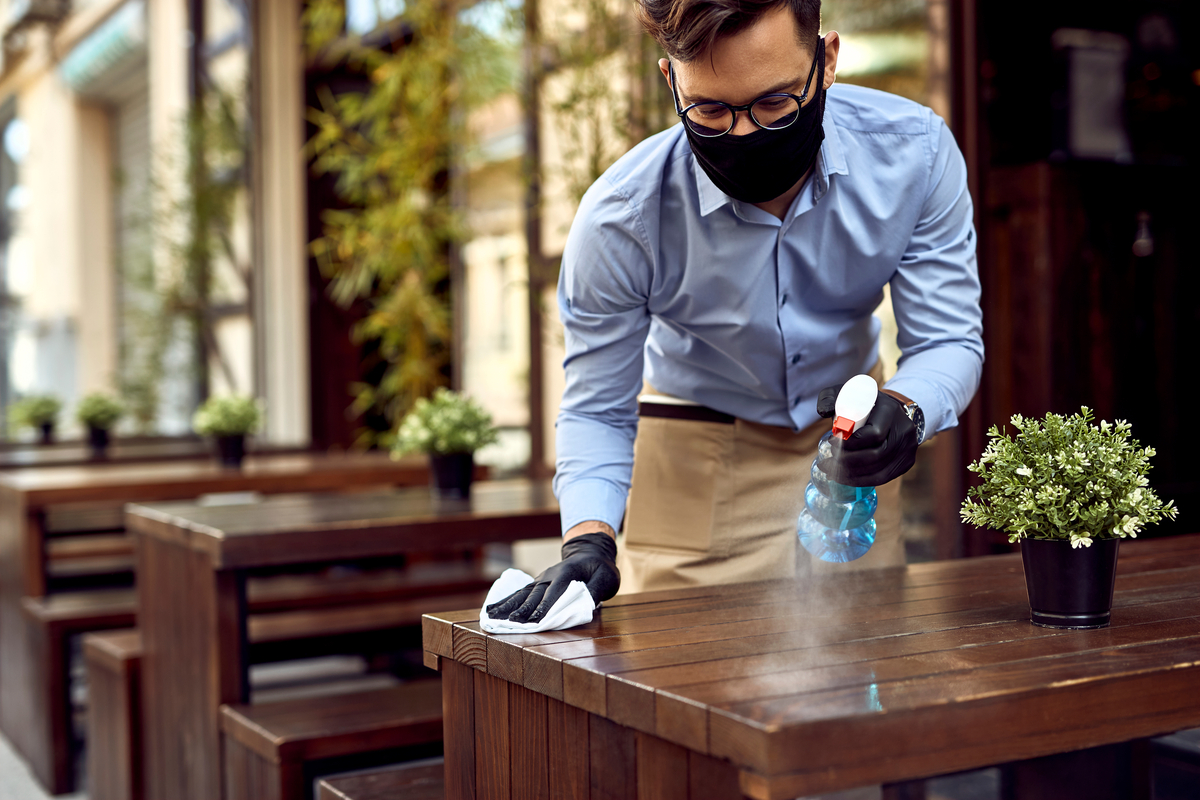
The Centers for Disease Control confirmed in an updated set of guidelines that it's highly unlikely to contract COVID-19 through food, but when dining out, there are other potential dangers to consider.
The updated advisory, released on June 19, is titled "Food and Coronavirus Disease 2019 (COVID-19)," and largely serves to demystify broad concerns about the risk of contracting the potentially deadly virus from food. "Currently, no cases of COVID-19 have been identified where the infection was thought to have occurred by touching food, food packaging, or shopping bags," the CDC states as a key and relieving takeaway. "Currently, there is no evidence to suggest that handling food or consuming food is associated with COVID-19."
The guidelines do note, however, that the spread of COVID-19 mostly spreads person-to-person through respiratory droplets when someone coughs, sneezes, or talks. The CDC goes on to warn that "it is possible that a person can get COVID-19 by touching a surface or object, including food or food packaging, that has the virus on it and then touching their own mouth, nose, or possibly their eyes." So, if someone is sick, it's imperative to regularly clean and disinfect "high-touch" surfaces.
At home, you can closely monitor a household member who may be sick and disinfect everything and anything they may have touched. But, at a public place like a restaurant, it's nearly impossible to know who touched what. So, as dining establishments near you continue to reopen, here are some surprising "high-touch" surfaces in a restaurant you may want to avoid touching (or, at least, disinfect your hands after coming into contact with). And, to keep yourself informed, make sure to sign up for our newsletter for daily coronavirus food and restaurant news.
Your chair
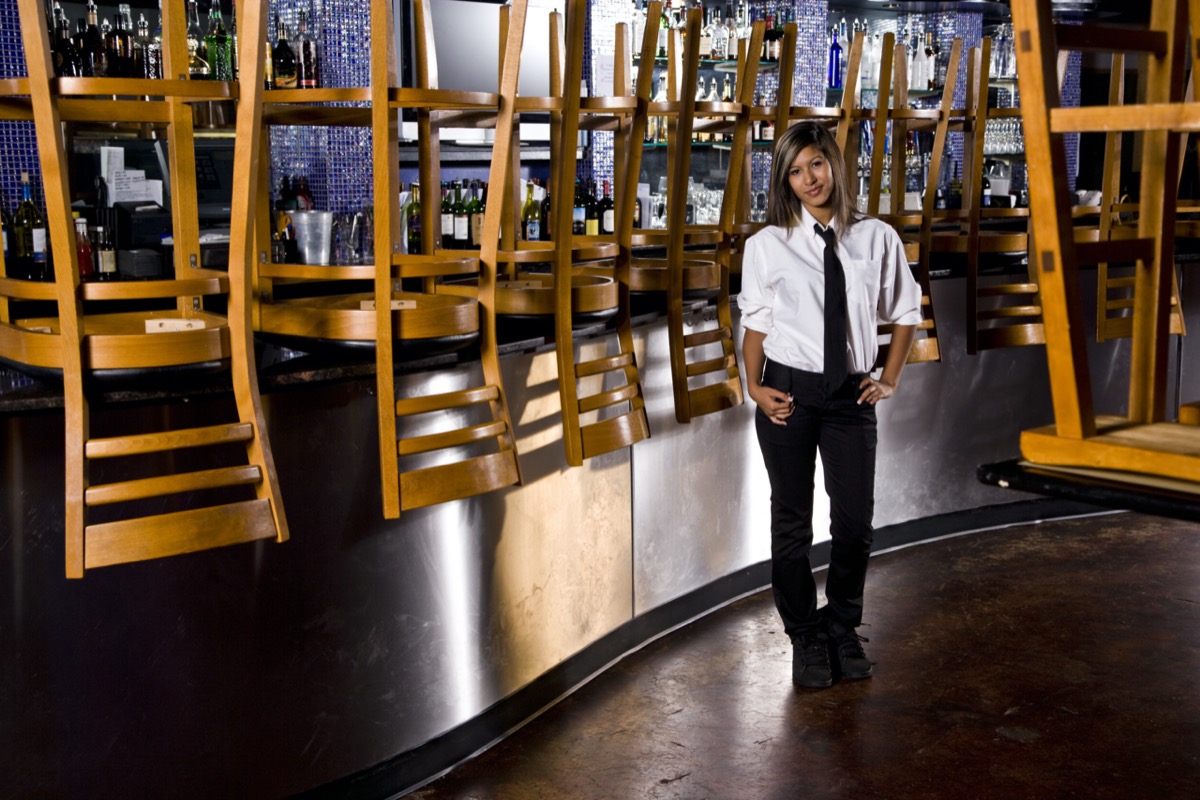
Food-safety experts advise caution when touching the most common item at an eating establishment: Your seat. Take, for example, Benjamin Chapman, a professor at North Carolina State University, who told MarketWatch that simply touching a chair that wasn't properly disinfected could cause someone to get coronavirus. (Related: 7 Precautions You Must Take When Dining Out With Friends.)
Salt Shakers
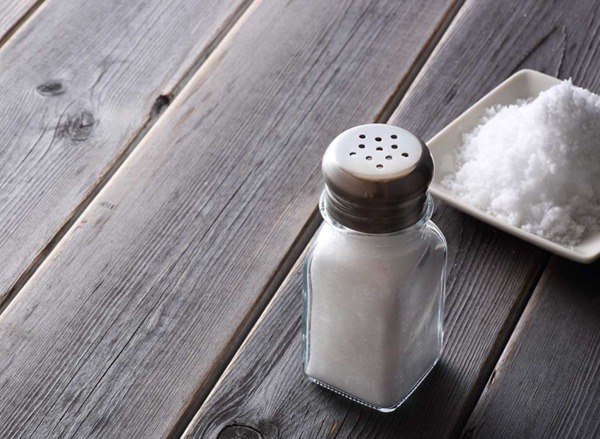
Yes, salt shakers, pepper mills, and virtually any sort of shared condiment bottle that may sit in the middle of your favorite burger joint table can potentially spread COVID-19. If the person who touched that item before you is sick, and the item in question has not been properly disinfected? Well, you run a risk of contracting coronavirus from that otherwise pedestrian action of seasoning your meal. This is why restaurants are taking great steps to lessen risks when they reopen.
Shared utensils
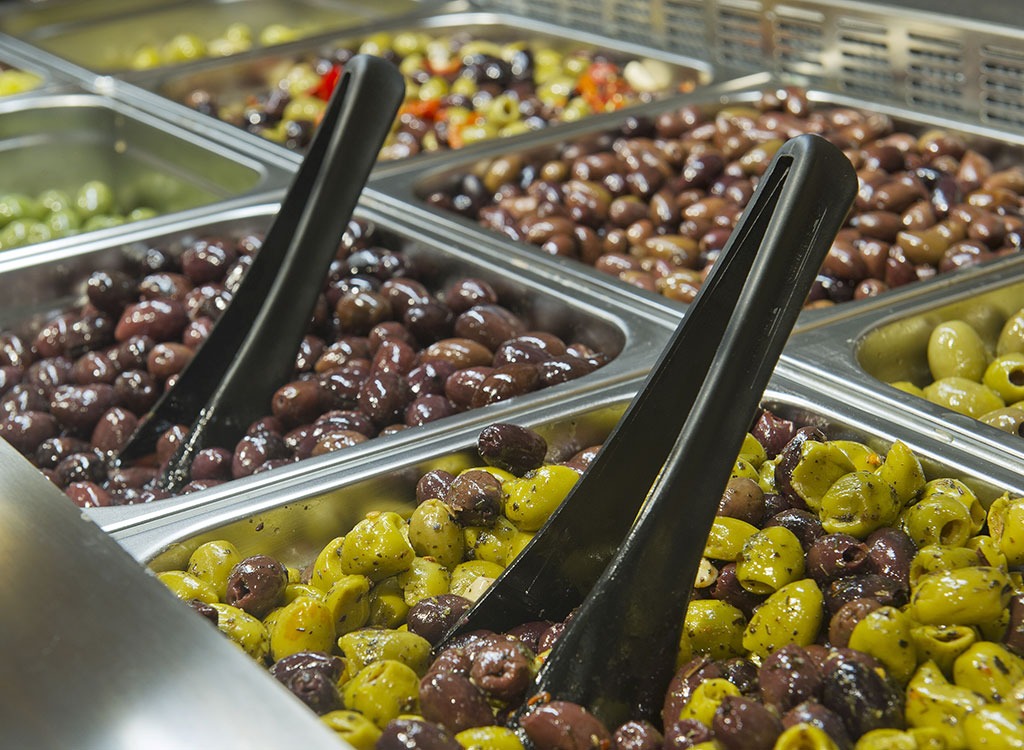
"If someone was sick and walked into a store and coughed on the handles of self-serve buffet utensils and you then touched your face, you could get coronavirus," Professor Chapman said to Marketwatch. If you need more convincing of how easily germs can spread at a buffet, then watch this terrifying video. Bottom line: Buffets should not be in service at this time, but even still, beware of any shared utensils.
Countertops
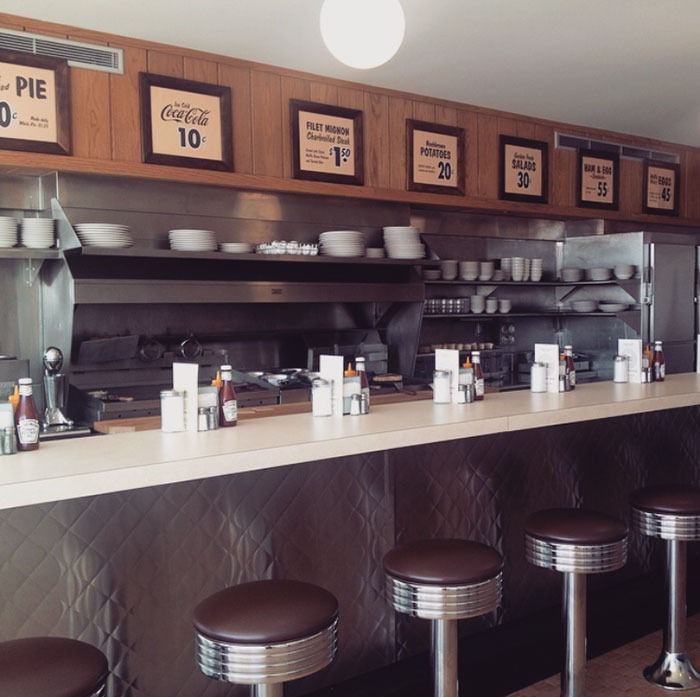
Countertops, and tabletops, of course, must be regularly disinfected. Restaurants have long wiped down tables and counters between seatings, but in the age of coronavirus, the cleaning solution must be of a far more potent and germ-killing variety, suggests the CDC. For reference, here's how long the COVID-19 contagion can live on a variety of surfaces.
Faucets
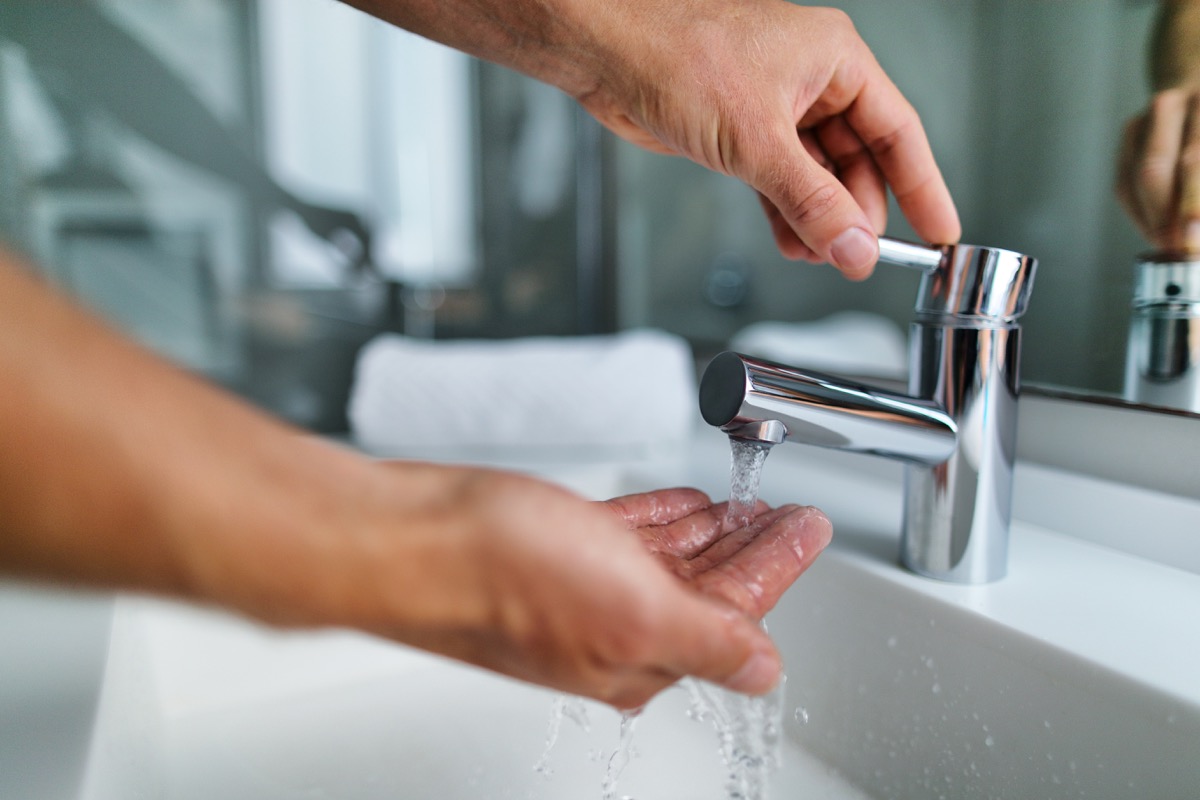
Public bathrooms can be a veritable cesspool of all sorts of germs, especially with the threat of COVID-19, largely due to dangers presented by the aerosolized nature of this particular virus. That's why you should be particularly cautious in how you wash your hands in a restaurant's restroom. Or, better yet, try your best to avoid using the restroom until you're back at home. (Related: The Worst Thing You're Doing in Restaurants That Infuriates Other Customers.)
Light switches
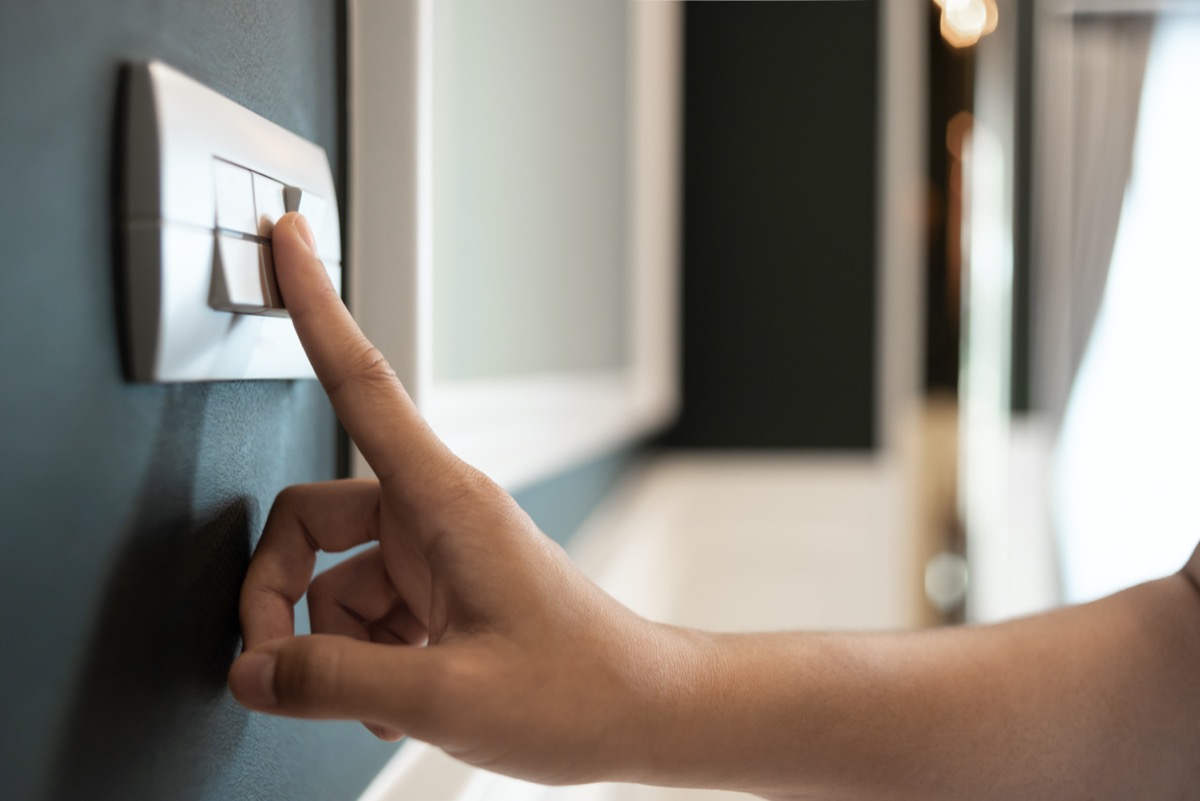
A light switch is the very definition of a "high-touch" surface. Even if you have just washed your hands in the restaurant's restroom, perhaps it's wise for you to leave the light on for the next user instead of flicking them off. (Related: Expect These Major Changes at Restaurants in the Days Ahead.)
Doorknobs
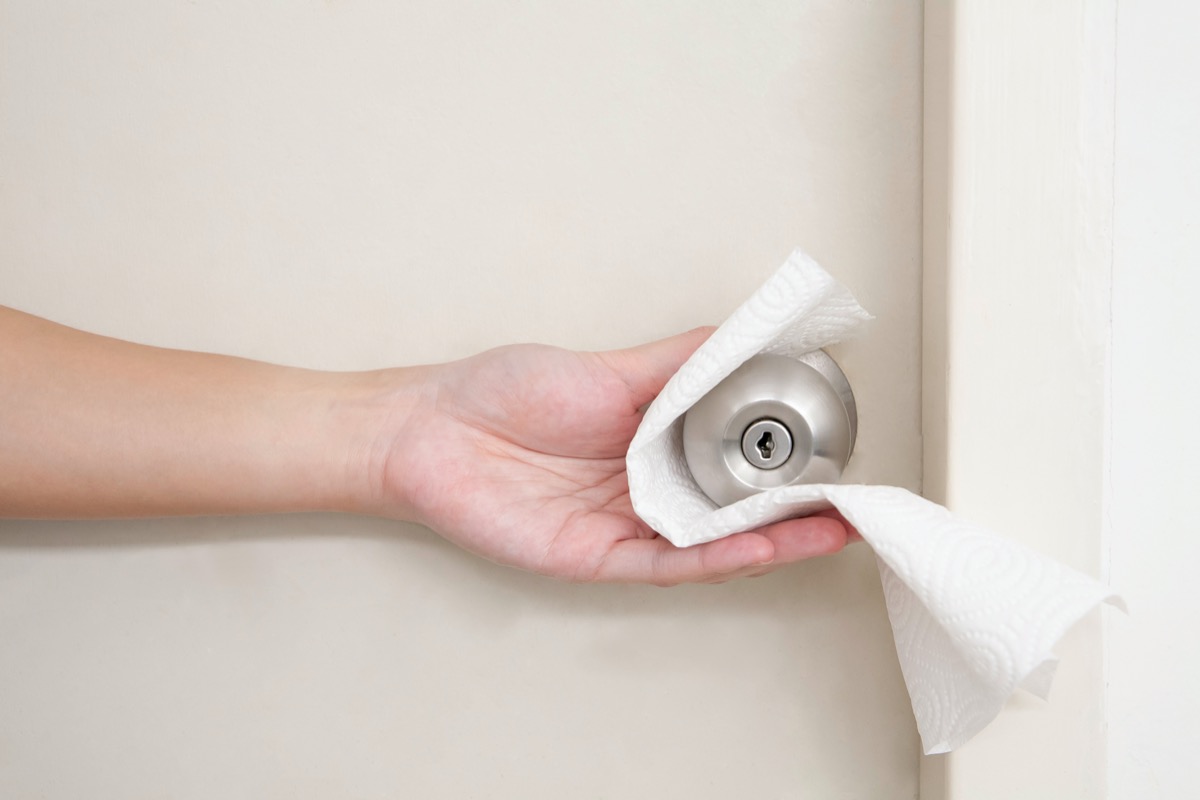
Doorknobs and door handles are absolutely frequently touched surfaces by many people in a restaurant. If possible, wait for the host or a server to open the door for you, or spray disinfectant on your hands after you've touched the door handle or knob. For more, check out These Popular Restaurants Have Been Tied to Coronavirus Outbreaks.


